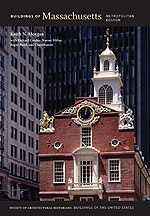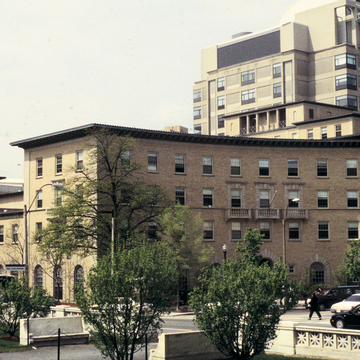You are here
Brigham and Women's Hospital (Boston Lying-In Hospital) and Vanderbilt Hall
Founded in 1832 as a maternity hospital for “deserving married women … and unmarried women [of] good character,” Boston Lying-In Hospital moved to its fourth location in 1923 as part of the Longwood hospital district expansion. Coolidge and Shattuck organized the tan brick and limestone, Renaissance Revival design around an irregular U-shaped court with the entrance pavilion (now badly altered) and operating and delivery rooms at the base of the U, the nurse's residence to the right, and the hospital wards (Richardson House, 1929) to the left. The Boston Society of Architects awarded their first Harleston Parker Prize to the architects for this building. Tsoi/Kobus has recently inserted the Longwood Medical Research Center, sympathetic to the original complex in material, color, and massing, and an expansion and renovation of the former nurse's residence.
Across Avenue Louis Pasteur, the successor firm designed Vanderbilt Hall, a luxurious residence for students at the adjacent Harvard Medical School. At the intersection with Longwood Avenue, the architects inwardly curved the facades of both Boston Lying-In Hospital and Vanderbilt Hall as part of the grand civic approach to the medical school. One of the first residence halls built for students in a professional program at an American university, Vanderbilt Hall also provided handsome public spaces, a dining room, and recreation facilities for the doctors in training.
Writing Credits
If SAH Archipedia has been useful to you, please consider supporting it.
SAH Archipedia tells the story of the United States through its buildings, landscapes, and cities. This freely available resource empowers the public with authoritative knowledge that deepens their understanding and appreciation of the built environment. But the Society of Architectural Historians, which created SAH Archipedia with University of Virginia Press, needs your support to maintain the high-caliber research, writing, photography, cartography, editing, design, and programming that make SAH Archipedia a trusted online resource available to all who value the history of place, heritage tourism, and learning.











